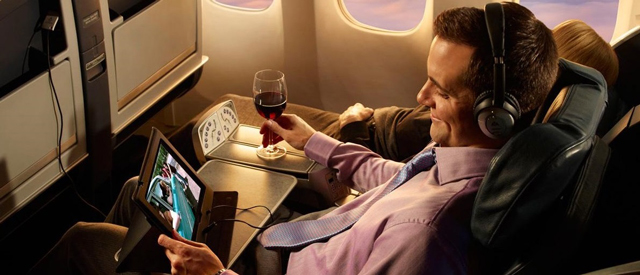Airlines are heeding the popularity of your smart devices and the increasingly reliable inflight Wi-Fi. The realisation that entertainment is best delivered wirelessly, without the expense or hassles posed by screens, is driving airlines to ditch the latter. Take a closer look at the trend with UNIGLOBE experts.

The most important consideration for what goes on board an airplane is poundage. Installing a screen in each seat adds weight, which burns extra fuel, in turn costing more money. Also the screens are prone to cracks and breaks as people often poke and punch at them.
In personal-device entertainment or the ability to stream TV and movies to passenger gadgets from the server on the plane, seems like a more practical and economical option for airlines. It is therefore slated to be the in-flight entertainment technology of the future.
Streaming systems are cheap for airlines to install and maintain, do not require the hassles of wiring, and also don’t contribute to the weight penalty. With travellers hooked on to their devices and phones, which are continually upgraded and easy to use, it is obvious for airlines to focus on and invest in the best entertainment and fast connection options rather than installing seat-back monitors.
For those who’ve already started worrying about your device batteries dying on you mid-flight, thanks to all that streaming, hold on. Airlines are also gearing up to install charging devices at each seat to ensure your device never runs out of the power to entertain you.
“This trend is more relevant for domestic and shorter flights. The international fleets catering to the long haul warriors are not likely to let go of the traditional back seat screens just yet,” concludes a UNIGLOBE expert.
